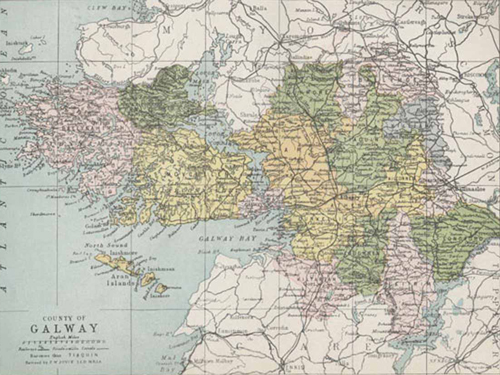Seizure and sale of cattle by Military in Galway denounced by Labour TD
Dublin, 2 March 1923 - The Free State government has defended its policy of seizing trespassing cattle and selling them to pay compensation due to the landowner.
The Minister for Home Affairs, Mr. Kevin O’Higgins, told the Dáil last night that the country was not in a state of war, but one of anarchy and sabotage. And the cause, he believed, was greed and a need to ‘get rich quick without working for it' by people who had a vested interest in disorder. Mr. O’Higgins also described the current administration as ‘probably the most conservative-minded revolutionaries that ever put through a successful revolution.’
The Minister’s comments were prompted by comments from the Labour TD for Galway, Mr. Thomas O’Connell who, in addition to drawing attention to the military seizure and sale of cattle in certain parts of the county, wished to know what act of parliament or sanction, this action was taken under. The Galway TD argued before the Dáil that the actions of the state were having the opposite effect to what was intended - rather than building confidence in, and respect for, the law, it was serving only to undermine it.
Mr. O’Connell made specific mention of a case at the Lewin Farm, near Tuam - according to the local TD, the landowner, Mr. Lewin had obstinately refused to sell to his tenants or grant them conacre facilities. He was not, therefore a figure likely to evoke much sympathy. Mr. Lewin’s house was occupied for some weeks or months last year by irregulars and it burned down on the night they evacuated it, in response to the arrival of Free State forces.
While Mr. O’Connell offered no defence of the occupation or the actions of the Irregulars he noted that a few tenants had grazing rights over certain commonage adjoining Mr Lewin’s lands and that, in the course of the Irregulars occupation, it was only natural that cattle would stray onto what was then a derelict farm.
The Galway TD continued:
‘No steps were taken to notify the public, or to put up notices, that trespassers on the lands would be prosecuted, and without notifying anyone—without issuing any notices—the military swooped down and took away the cattle which they found on this farm. They carried them off and sold them, as I am informed, in the Dublin markets. In all, eighteen cattle were seized. They belonged to four tenants who hold land immediately adjoining this farm. Ten of these cattle were milch cows, belonging to these four people who are small farmers holding ten or twelve acres of land in the neighbourhood. Now, when the cattle were seized, the owners of them offered to pay any reasonable compensation that would be fixed as their part of the damage, but this appeal was ignored and the money was held. This is a point I want to stress; there was nothing, as far as I can learn, in this case in the nature of an attempt being made by or on behalf of these people to seize the farm that was derelict. There was no attempt to seize the land, or to hold it.’
In view of the above, Mr. O’Connell said that the government’s efforts to build trust in the law will only succeed if the people feel that the law is just, and justly administered. Responding to Mr. O’Connell, the Minister for Home Affairs, seized upon his remark about the present being the child of the past; ‘It was used here recently before, and it was used on one occasion on which I visited the Seanad. Now, I have no recollection in the recent past—in the past five or six years—that we are here concerned with, of advice being given to any Irishmen to burn the homes of their fellow-citizens or to seize the property of their fellow-citizens. I think we were probably the most conservative-minded revolutionaries that ever put through a successful revolution.’
[Editor's note: This is an article from Century Ireland, a fortnightly online newspaper, written from the perspective of a journalist 100 years ago, based on news reports of the time.]





















